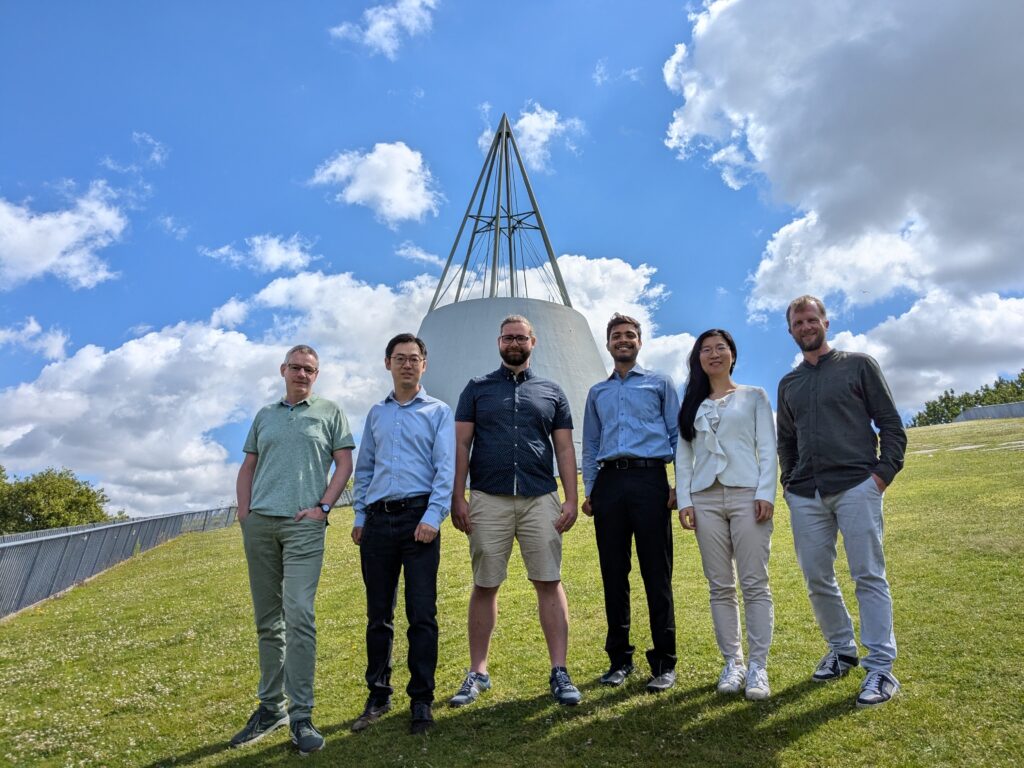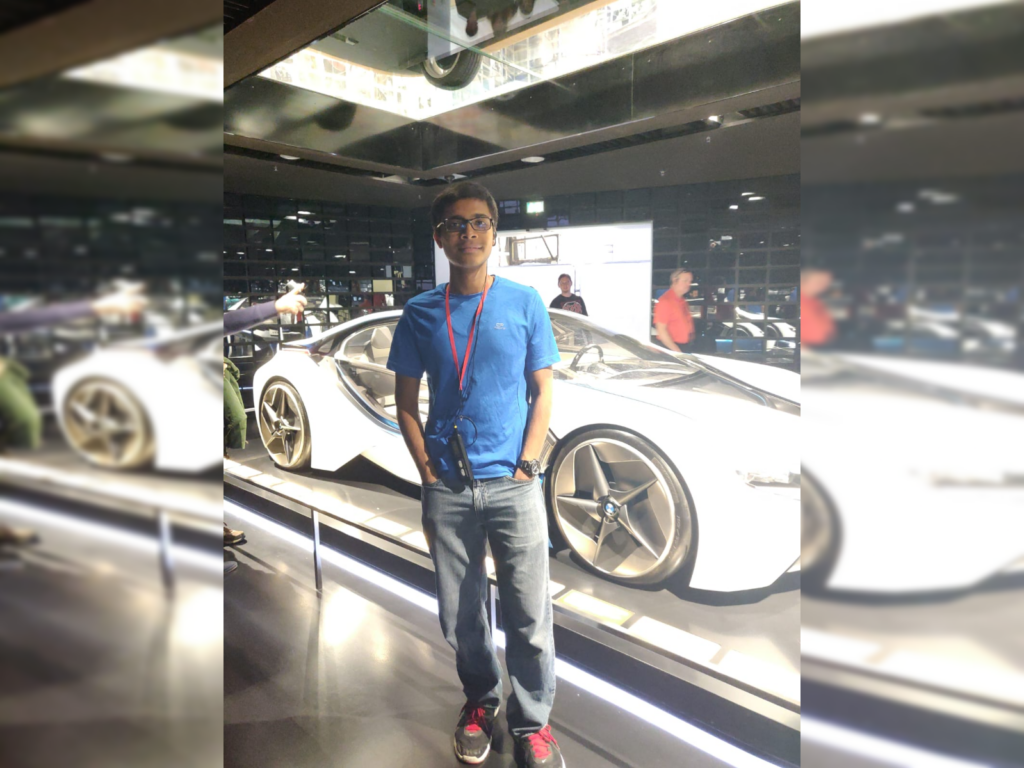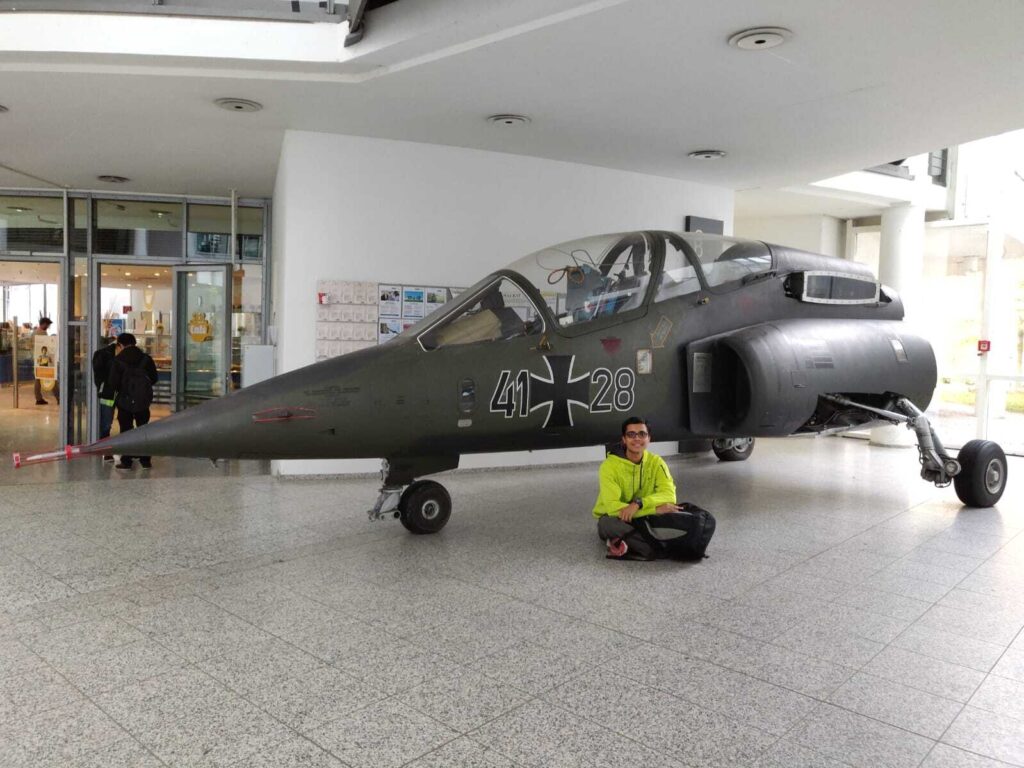I’m Swapan Madabhushi, and I’m currently doing my doctorate in machine learning and quantum computing in the Netherlands. The full scope of the research you can find here, but the purpose of this blog isn’t related to that, so we’ll keep it at ML and QC.
I got into this after pursuing my Master of Science in Power Engineering at the Technical University of Munich, Germany. I spoke with Leap about my journey for their expert student series—Indians who had studied abroad recently and are still in that country pursuing their dreams—because I want to help others wanting to take the same career jump that I made.
1. How did I get here?
I studied at the Manipal Institute of Technology in Manipal near Udupi, Karnataka. During the course, I did research into rotating machines under an Indian German professor. He encouraged me to continue this by pursuing a Master’s in Germany and recommended universities that were good at it. I shortlisted Karlsruhe University, Karlsruhe KIT in Baden-Württemberg, near Stuttgart, and other universities were TUM, Munich, of course, RWTH Aachen, FH Aachen, etc. And I like the program and power engineering at TUM Munich because it allowed me to get the whole concept of the use of rotating machines for power generation and transmission.
2. What was that process like?
Choose your dream country
When do you want to study abroad?
What's your highest level of education?
Select you current city
How Leap will help you
Personalised University Shortlist
Express Applications with Quicker Admits
End-to-End Application Support
One or two interviews were conducted by a professor and his PhD student, along with a clear, transparent calculation of points that they do based on your SOP, letter of recommendation, and research work.
3. And how did you go about writing the SOP and LOR? All of that stuff. Did you have guidance?
To be frank, I took some consultancy, but in 2018, they weren't very experienced with the SOPs of German universities and LOR. So I just wrote it in a convincing way, which is starting with the motivation of how I decided on my course and my path of research.
For example, making a hook or a bolt plane such that most of the energy produced and generated has some or the other link with rotating machines around the world and making them more efficient is one way to go about having a greener future. And I just talked about how I got interested in it through experiences in small projects during my bachelor's.
“What do you want to do here at TUM?” was a very important question I realised.
In the interviews, they asked me what I planned to do with my time at the university, what other research I found interesting, the professors that I wanted to work with, etc.

4. How was the process of culturally assimilating into the environment? How was the vibe?
People are supportive. And even right on the first or second day when I went to the office to register for my address, people were really helpful and supportive. Even though the wait was long, I had good conversations with other students. Btw, this is the first step that people should take once they go there: register with the city council.
I was lucky to have a very international bunch of roommates from Poland, Italy, the USA, Canada, etc. In the evenings, we would discuss the differences and similarities in our cultures.
5. How was the education different?
I found both the positive and negative things about the German Masters. The exams were extremely lengthy, and one has to be focused on fundamentals. The professors were busy and you can't just go at a random time to a professor's cabin and ask for doubts. Usually, you stick with the Ph.D.s when you ask for doubts. And in India, I believe you can just go up to a professor on a weekday evening to ask some questions.
On the other side, unlike India, where you have a standard classroom during bachelors, here we have classrooms allotted on a semester basis. So you sit at any place you want, and every time you sit beside a different person, during the breaks in between the lectures that you have, a couple of minutes of coffee breaks, you talk.
6. Outside the classroom: BeerFest.
In the first month itself, usually, all German universities have something called an articulation ceremony. There they keep a tap on a barrel of beer, and they just start giving out free beers for the matriculation, and it's like the start of your semester. You interact, party around, and after that, you have events organised by the expat club of the university with some German students to explore Munich and around Europe at times. Then you always have group study sessions that you can have with other students in your class.
Another interesting thing, well, a culture shock, was we could buy beer at any place right outside the classroom. I think now it's been a bit restrictive that you can't drink beer during the classroom, but back in 2018 you could just get a beer, drink in the classroom, eat, and get snacks in the classroom, which I found nice.
7. Financing financing financing
I started with a blocked account, and I would mostly use all the money in the blocked account every month, around 800 or 900 euros plus maybe a top-up that my parents would send in the first and second semesters.
In the third or fourth semester, I got a job as a working student at the German Aerospace Centre, which provided me with another 600 to 1000 euros every month.
But depending on the city, your rent decides how life is going to be. In Munich, in the first few months, people have private student dorms or accommodations that are costlier than the government-subsidised dorms that you're given but have a wait list of three or four semesters at times. After that, once you have a subsidised term, things become quite easy and cheap.

8. Personal finances
For the first few months, my rent was 520 to 580 euros a month + another 100 euros for the insurance. Then you can kind of go between 100 and 200 for food. And so this adds up—how much? About around 800, and on a good month you save some 40 to 50 euros. You can plan a trip, go to restaurants, eat outside, or go for a movie.
Once you move into a private dorm, it's usually in the order of 180 or 200 euros, so you save 300 euros there. But because you have more money left, you tend to spend more because you have lots of social events, such as going out to a restaurant, exploring a new city pub, or going to a neighbouring city or a neighbouring country, because things are nearby. You can go to Austria in a day and come back, or sometimes, if you plan well enough, you can probably go to Italy and also come back.
So one spends around 800 euros every month as a normal student. My total spend for the entire course, including house deposit etc was around 20,000 to 23,000.
9. Is this worth the spend?
I think so because the specialisation that I wanted wouldn't be possible at other universities.
10. Finding student jobs and actual jobs
It was slightly tough because I specialised in aerospace design, so I was restricted to wind turbine design and commercial aircraft design. So I took a semester extra to find a student job. But usually, if you have a common specialisation, people get it by the second or third semester.
11. Advice on how to find a student job
For non-technical jobs, one could stick with the part-time delivery jobs. Then you have the next level, which is academia technical jobs, which help with the coursework. For that, usually, the universities have portals that one has to always keep checking. One has to be quite clever with it whenever there's an update on your position. Conscious apply.
And third is, selecting the companies that they wish to work with and looking for careers on their website.
12. Things you should study
I think starting with the current specialisations would be in terms of anything in terms that's leading toward sustainability. The second would be anything that's leading toward semiconductors. Also during your master's, when it ends, be very careful. Apply, apply early. Apply as much as you can, and don't procrastinate in perfecting your VC.
13. Do you have the emotional makeup to choose Germany over the US or the UK?
Come here if you want to focus on something that you really wish to work in, and not something because you want to become a millionaire. I came here because I like the work-life balance that we have in Europe. Being a millionaire wasn't on my list. But for example, I can log off on a Friday afternoon, go to the mountains, be off the grid for three days, and come back on a Monday afternoon, and that’s chill.
The flipside of that is loneliness. It's very tough to make German friends, and that's one thing that many people underestimate. You don't have much loneliness during your master's, but after that, during work, you kind of feel lonely. A couple of my friends went back to India after working for a couple of years in Germany.
So if you can handle the loneliness or you're extrovert enough to make friends, come here if you want to live a happy life with all the benefits, such as great air, great roads, great nature around you, and great health care.
















Have Questions? Get Guidance to reach your Dream University
Connect with India's finest counsellors and biggest study abroad community.
Get Guidance